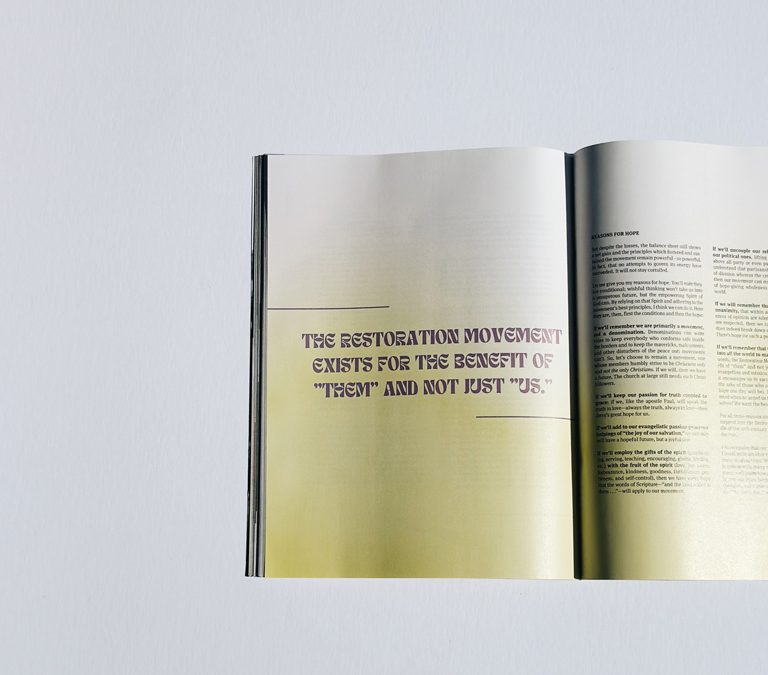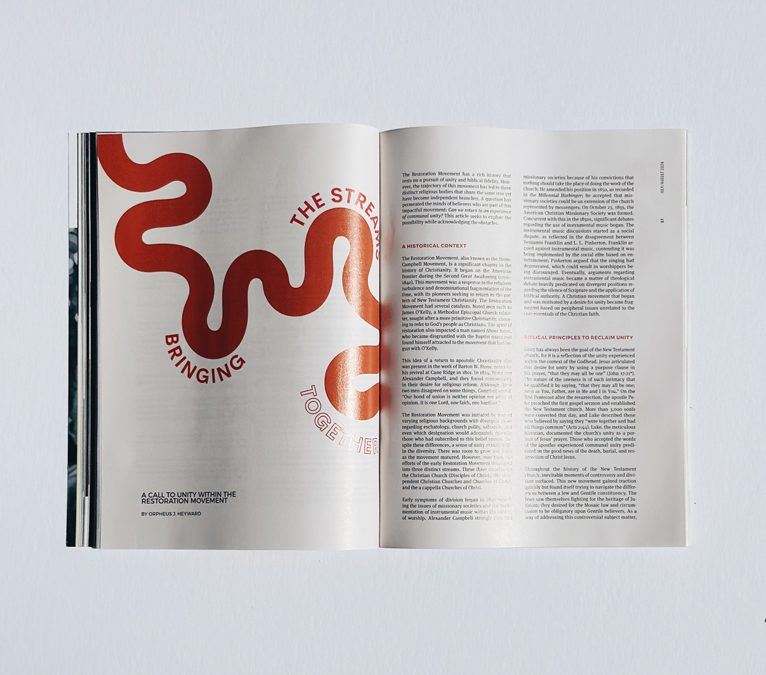This is a sidebar to the article, “Staying True? (A Christian Standard Report on Our Colleges)”
_ _ _
By Chris Moon
To answer or not to answer.
That was a question 23 college presidents faced upon receiving a Christian Standard survey asking about their institution’s views on biblical inerrancy, human sexuality, and women in ministry. The survey was sent to presidents of colleges affiliated with the Restoration Movement.
In the end, 16 presidents responded. Seven did not.
Multiple presidents who responded to the survey said they grappled with the decision because such topics are controversial. Proclaiming one’s views about transgenderism or women in ministry could cause a landslide of reaction.
Some presidents said they feared being misunderstood. Others said they were concerned they would receive a lot of phone calls—and even criticism—from their student and donor bases.
Still others were concerned a public airing of views on hot-button subjects would divide the colleges.
“I believe there were some people who feared that with a survey, we could be pitted against each other and be in the unenviable position of speaking against the stands that other schools take,” said David Fincher, president of Central Christian College of the Bible.
The things Christian Standard asked about are “a gotcha topic” in the news and on social media, Fincher said.
“And people who read your magazine often participate in such things: ‘There goes Ozark again, Johnson’s not the same school it used to be, Central is changing, etc.’ I believe they felt there was a danger they would provide ammunition”—either against another school or their own schools, Fincher said.
ANSWERING, BUT NOT ANSWERING
Within hours of the dissemination of Christian Standard’s survey, 20 college presidents launched into a discussion about publishing a joint statement expressing their solidarity with one another. The presidents already interact with each other on a regular basis.
Fincher helped draft the joint response.
“I believe one president saw this as an opportunity to bring us together and show the brotherhood the nature of our commonality,” Fincher said. “And it’s always easier to edit and sign onto what someone else wrote than for 20 people to write their own thing. I believe we genuinely respect and affirm one another, so it was an easy sell for people to do.”
In the joint statement, the presidents said they were “accountable to the Lord, our Boards, and our constituents.” They expressed their desire to have “healthy doctrinal conversations” and neither bend to cultural pressure nor get bogged down in “secondary issues.”
“We thank God for our fellow presidents and intercede for our sister schools,” the presidents said.
The joint statement, however, did not directly address any of the three major topics of the survey—biblical inerrancy, human sexuality, and women in ministry. (The joint statement can be found at the end of our “Full Responses” sidebar, which carries the full responses of all of the Christian college presidents.)
Seven college presidents declined to share their institution’s views on those topics. They represented Alberta Bible College, Bushnell University, Carolina Christian College, Colegio Biblico, Hope International University, Johnson University, and Summit Christian College.
Christian Standard tried multiple times to garner responses.
Fincher said timing was an issue. The survey was sent out as the presidents were wrapping up the 2022–2023 school year. But the presidents were given an opportunity to respond well past the original deadline.
One president—Carolina Christian College’s LaTanya Tyson—indicated her only response would be the joint statement. Other presidents didn’t respond at all.
‘CRITICALLY ENDANGERED SPECIES’
Presidents who did respond to the survey provided a window into their thinking.
Frank Weller, president of Great Lakes Christian College, said “the challenges in Christian higher education right now are enormous.”
He said faith-based, four-year private colleges like GLCC are “a critically endangered species right now.”
Indeed, multiple Restoration Movement colleges have closed in recent years. (The upcoming closure of Johnson University Florida on June 30, 2024, was announced as these articles were being edited.) Other institutions face financial and accreditation hurdles.
Faith-based colleges, Weller said, also face an “existential threat” with the possibility they could be excluded from federal financial aid programs. That funding helps keep colleges afloat.
The national progressive agenda, rallying around the homosexual and transgender movement, could jeopardize that funding. It also could jeopardize the accreditation of faith-based colleges that don’t acquiesce to its demands.
Because of that, Weller was hesitant to respond to Christian Standard’s survey. The questions in the survey, he said, could lead to debate. And colleges, he said, need to stay “laser-focused” on their core mission of educating their students.
“I don’t want a distraction. That’s it,” Weller said.
But he admitted, notwithstanding the potential distraction it may cause, that colleges have a duty to make their positions on these hot-button topics transparent—because prospective students and their parents will be asking these questions.
“The only responsible thing is to know where the colleges stand on those issues,” he said.
‘O CANADA’
In Canada, the environment is even more volatile than in the United States.
Richard Jones, president of Maritime Christian College on Prince Edward Island, said he also hesitated before completing the survey.
He noted Canada has a constitutional right to free speech. But, he said, the nation has a progressive federal government as well as a legal aversion to “hate literature.”
Jones said it remains unclear what a person or institution can and can’t say as it relates to things like homosexual activity and transgenderism.
“It’s a battleground in Canada for sure,” he said.
Still, colleges have a duty to “openly and honestly” state their positions on these topics, Jones said.
“We want to be very wise,” Jones said. “That doesn’t mean we hide our values.”
_ _ _
The full responses from college presidents to Christian Standard’s survey are available at ChristianStandard.com/full-responses. The joint statement signed by 20 college presidents can be found at the end of that file.





I graduated from Lincoln Christian Seminary in 1984 and 1990 (MDiv, MA). I’m not an enemy of high Christian education. But I am marked as an enemy to the State, which ultimately is the gatekeeper of higher education. The accreditation system at present is fully capable of silencing and controlling school curriculum, especially in Canada. Romans 1 and 1 Corinthians 6:9-11 are deemed hate speech here.
The days of acceptance and tolerance of the Faith are passing away. We do need rigorous training and education for men who will learn the languages, hermeneutics, history, theology, and preaching who will lead the way. This training will likely need to operate under the accreditation radar.
The open egalitarianism and even sexual sin being pushed in the Restoration Movement will end us as a movement. Perhaps we didn’t study history enough when looking at the Disciples of Christ.